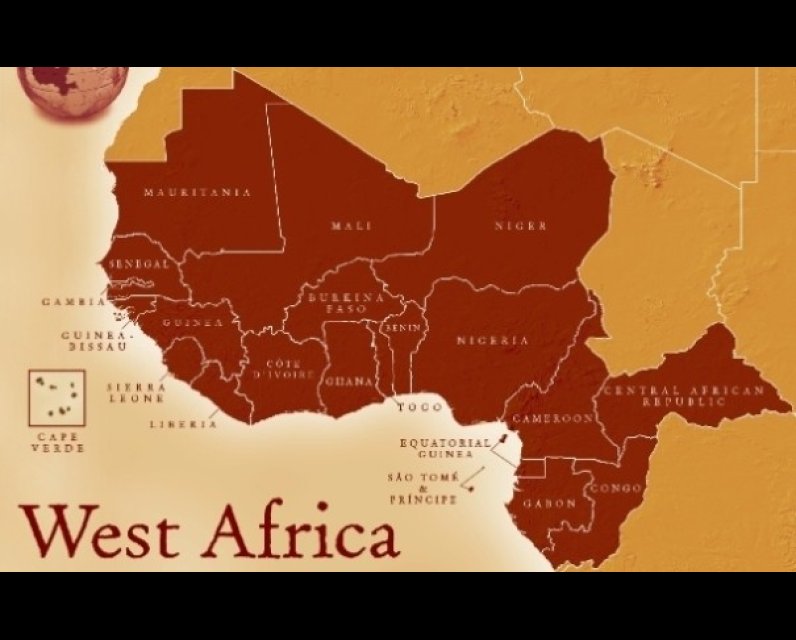Unpublished Opinions
Graeme Boyce, an avid scuba diver and amateur historian, has had a successful career in business as an “agent of change”, and independently writes articles involving the struggle of people. Over the past twenty years, Boyce has participated in the growth of many exciting ventures across several industries, such as travel and tourism, entertainment and media, and new technology.
Currently, he is CEO at Solamon Energy having written its business plan, as well as various strategies and communication plans. His corporate responsibilities over the past five years have included traveling extensively across South Asia, North America and Europe, as well as throughout the Caribbean and Central America to meet leaders, both elected and appointed, advocating the implementation of renewable energy solutions.
West Africa: a powderkeg ignited

There is a struggle for power on-going throughout the world, and I truly hope it will not explode in West Africa given the events today in Burkina Faso. The people I met from West Africa - from Burkina Faso and Ghana, to Nigeria and Congo - were all visionary and all hope for a better future for their children... obviously one that does not include violence, or especially war.
I was taught in my high school history classes a long time ago that prior to World War One, or "the war to end all war" in brief, that The Balkans was a powderkegand that events within those countries, such as the assassination of Archduke Ferdinand and his wife while traveling in a motorcade through the streets of Sarajevo on 28 June 1914, led to the outbreak of a conflict that upon spreading across the world killed nearly 20 million people, and wounded an equal number, while displacing and leaving homeless many millions more.
Sadly, after the conclusion of hostilities in 1918, the global flu pandemic killed another 20 million humans. The suffering of their struggle was immeasurable.
A century later, with hindsight as a benefit, we know control for resources mainly between the expanding kingdoms of Europe was ultimately to blame for the four years of unrest, complete upheaval, endless arguments in boardrooms and killing on battlefields around the world. The men and women in the years leading up to 1914 who controlled the destinies of their people wanted to expand their empires and, most critically, to reap the rewards of victory - the spoils of war - whether the enemy was equally as well-armed or not.
As a result of the Armistice signed to end World War One, many empires and the aspirations of rulers crumbled, some silently and some with a bang, not a whimper. War reparations imposed on Germany resulted in the outbreak of World War Two, but in the years before both Italy and Japan had sent their armies to forcibly obtain the wealth of other nations and crush any opposing force that might resist and defend their own rights. Ethiopia, however, succeeded in its resistance to Italy's advances and maintained its independence.
Other than Liberia, across the continent of Africa each country was essentially a colony one hundred years ago, in fact officially partitioned by European rulers at a conference in 1885 held in Berlin, and their resources allocated accordingly. The people were expected to extract and ship their wealth to the colonial power. To make a long story short, the colonies granted independence to these countries after World War Two, preferring to enable economic forces to determine the outcome of supply and demand. Business, and the generation of profit, supporting the growth of pan-national corporations was paramount in transforming these nations, based on the value of the resources at hand.
The colonial powers had never intended to educate the people and certainly had never intended to provide power to the people. The people were considered a source of cheap labour, simply another local resource to be exploited, efficiently and effectively, controlled not necessarily at the point of a gun but rather hope for a job, and hope that one day their children might too have a job. The priority for the people was feeding their families, and "the city" was the best place to find a job. Over the past few decades, populations have skyrocketed in cities across Africa and, despite best efforts, infrastructure has not kept pace, and governments are still learning their true responsibilities to the people.
In this respect, I am reminded of a bumper sticker: Farms feed cities.
During World War Two, the transport of raw goods from African ports was certainly dangerous, mainly influenced by u-boats prowling offshore, and this reduced trade (and declining colonial support) led to the rise and prominence of indigenous industries, as well as increased literacy and also trade unionism. Facing this, hand-picked successors were proudly selected by colonial administrators and in most cases sent abroad to be educated at Western universities. This elite, nevertheless, eventually led their respective countries toward independence in the 50s and 60s, without the need for parliaments.
Today, Africa in general has a lot of natural resources to offer: from diamonds and gold, to iron, cobalt, uranium, copper, bauxite, silver and oil - but also salt, cocoa beans, woods and tropical fruits. Over the past decade, given new technologies, it is obvious the wealth of Africa remains greatly untapped and it is worth trillions. China today owns 40% of Sudan's oil production and exploration across the continent for new petroleum sources is well underway, offsetting the currently disputed ownership of production and distribution in many other states.
However, Africa as a whole enjoys a vast amount of mineral wealth. Its mineral industry is the largest in the world, albeit largely unregulated and often criticized for its negative impact on the environment.
According to Wikipedia, "African mineral reserves rank first or second for bauxite, cobalt, diamonds, phosphate rocks, platinum-group metals, vermiculite, and zirconium. Many other minerals are present in quantity. The 2012 share of world production from African soil was bauxite 7%; aluminium 5%; chromite38%; cobalt 60%; copper 9%; gold 20%; iron ore 2%; steel 1%;lead (Pb) 2%;manganese 38%; zinc 1%; cement 4%; natural diamond 56%; graphite 2%;phosphate rock 21%; coal 4%; mineral fuels (including coal) & petroleum 12%;uranium18%."
With change necessary and imminent, we've heard the Muslim Brotherhood toppled the dictatorship of Colonel Gaddafi in Libya, and though outlawed threatens other nations, while Al Shabaab bombs and kidnaps people in Eastern Africa (mainly Kenya and Somalia) and that Boko Haram brazenly continues to terrorize the people of Nigeria, but the exploits and influence of Al Queda have now spread into West Africa, specifically Burkina Faso:
http://www.cbc.ca/news/world/burkina-faso-hotel-attack-1.3406990
There are many sub-Saharan countries that enjoy vast amounts of mineral wealth and natural resources, that one day will be tapped, and sold. At the moment, it is the control of these valuable commodities that is being fought over, and when the killing stops only then will those leaders left standing realize that providing power to the people will remain their uppermost goal. They will still need to design and build roads, schools and hospitals atop devastated land; they will need help. Soldiers returning from the front will need help. Millions of refugees will need a place to live. They will each need hope, hope for a job.
On behalf of their children, they will need to produce bread not bombs. Although the fuse has been lit, if the powderkeg does not explode, there are immediate solutions that we have all discussed that can be implemented to provide power to the people, such as the creation of self-sustaining cities utilizing renewable energy, whether solar, tidal, wind or thermal. I hope real change is forthcoming. History has proven the pen is mightier than the sword. Yet talk is cheap, and people with guns know action speaks louder than words.
This is an insightful article written a few years ago with respect to the "problems" facing Africa and Africans worth reading and reflecting on, especially whether the overall quality of life has improved or not, due to increased education or entrepreneurship, in the wake of evolving and increasingly interacting global economies



Comments
Be the first to comment